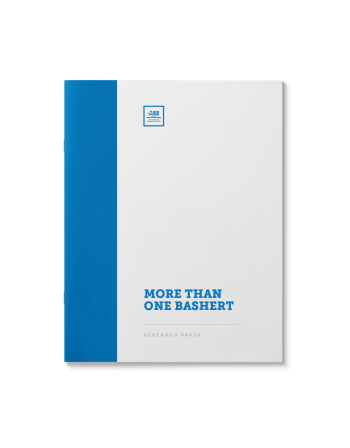Metzitzah b’Peh: Why It Matters
$39.00
A sharp analysis of the halachic debate raging in Jewish circles. Reviewed by a prominent Mohel, who is spearheading the court case defending this tradition, this paper looks at the way metzitzah b’peh has been treated throughout the ages and how it might be dealt with today. Important supplementary material included.
| Language | English |
|---|---|
| Paper Type | Research Paper |
| Pages | 20 |
Related Products
האם מותר להניח פרחים מעל ארון או קבר המת? הבנה יסודית בהגדרת האיסור והטעמים שלא ללכת בחוקות הגויים, מביא אותנו לסכם את שיטות הפוסקים בדין הנחת הפרחים.
Emulating G-d’s example, we are encouraged to visit and tend to the sick. Our presence is assured by the Talmud as having the power to heal a portion of the patient’s suffering. Does Halacha provide guidelines for the visitor in the performance of this mitzva?
Prayer, too, is an integral part of this mitzvah. What particular prayers should be said for their recovery? What about assisting the individual in the recitation of prayers during their final moments?
A comprehensive examination of the ancient promise that those who attend a bris are forgiven of all their sins. Where did the legend start? To whom does it apply? And how seriously do we take it today?
Many Jews won’t cut a boy’s hair until he is three years old. What is the history of this custom? What lessons does it hold for us? And does everyone have to keep to it?
Why reducing the sanctuary of the soul to a pound of ashes is an unforgivable sin.
לא טוב היות האדם לבדו. סקירה על דבר משמעות טובת האדם והתועלת שנוצרה על ידי בריאת האשה, על דרך הפשטני והמדרשי. עזר כנגדו.
Missing persons raise
tough questions. How long must we wait before they are presumed dead? What is
the mourning process? And may the missing person’s spouse ever remarry?
From the moment Avrohom circumcised himself at 99, the Jewish Bris has been the pivotal act of Jewish identity throughout history. It is at this moment that a Jewish boy is given his name. Yet when a bris must be delayed for medical reasons, can the parents give him his name anyhow, or must the boy remain nameless until the Bris takes place?
Love is not bound by time. Even after a loved one passes on, they continue to live on in our hearts; we treasure the memories of the times we spent together and immortalize them through noble deeds.
But may we communicate with them after they’ve gone? The Torah (Devarim 18:11) instructs us to avoid all occult arts, such as sorcery, divination and necromancy. What are the details of these laws and what practical relevance do they have?
Related: Familial Bonds in the Hereafter and תפלה על קברי צדיקים
Table of Content
(21 PAGES)
Query from a Shliach in France
“A single moment of repentance and good deeds in this world is greater than all of the World to Come” (Avot 4:17).
During the final stages of a terminal illness, a patient may endure pain and suffering with no hope of improvement. What measures must be undertaken to prolong the life of the patient?
What are the halachic requirements for administering nutrition, hydration, oxygen and antibiotics? Does the age or presence of mind of the patient play any role in the decision?
Although questions of this nature must be dealt with by a Rav moreh hora’ah b’poel on a case-by-case basis, this paper provides an overview of the relevant issues.
Guidance from contemporary Poskim on the permissibility of contraception. Reviewed by a Moreh Hora’ah.















